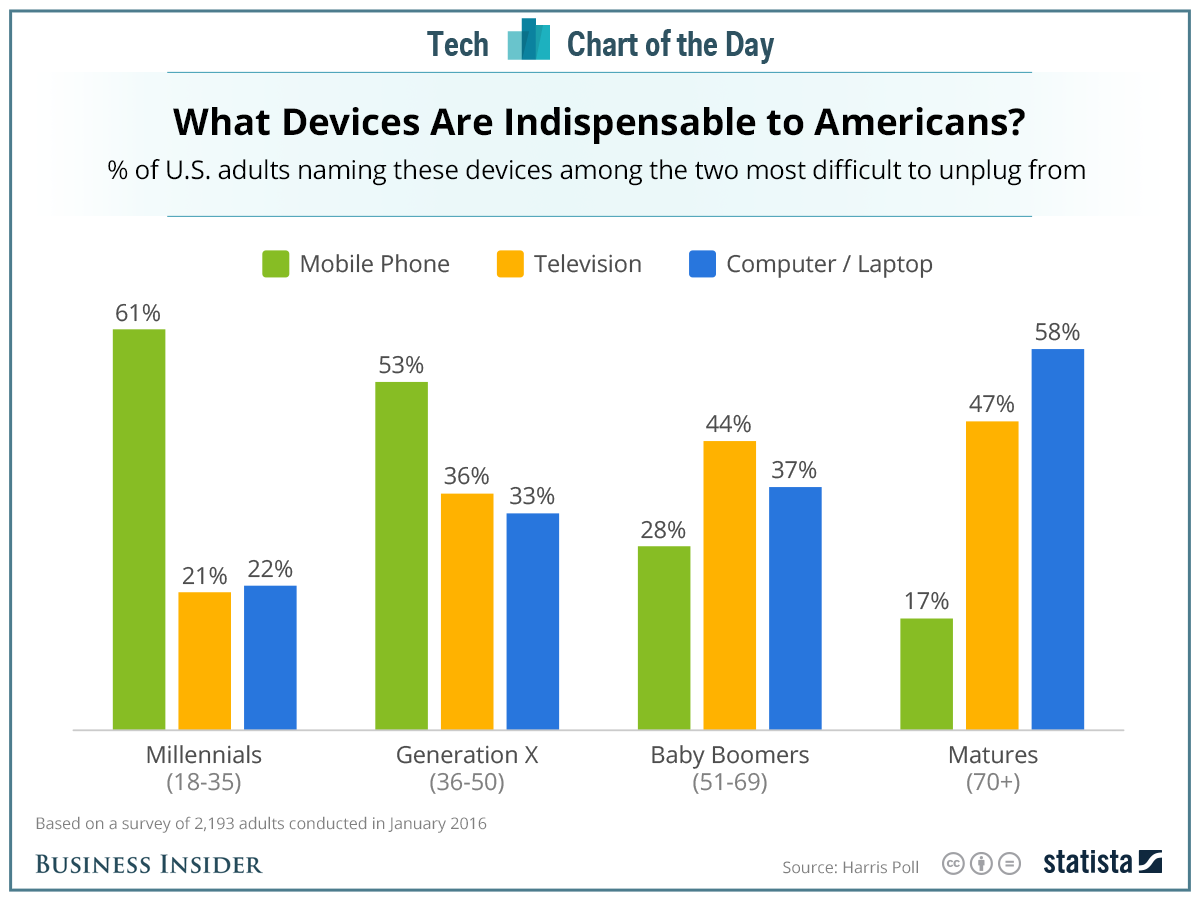
Source: www.businessinsider.com/young-americans-cant-live-without-their-mobile-phones-2016-3
If Millennials and Generation X can’t live without their phones then shouldn’t we be using this as one of the primary tools for learning. I have two Millennial sons and it only takes a few minutes to see how useful their mobile phones are. There are very few aspects of their lives where they don’t rely on their phones. My boys are athletes and log their riding, nutrition and mosts aspects of their training. They both use Google forms to input their riding logs and depending on who is driving back from a training session one of the boys is using their mobile phones to update their riding logs. They do realize that it is more efficient to use their laptops or even their tablets for touch typing but he advantage of using the phone is that you don’t have to wait and can get the log out of way immediately.
Immediacy plays a very important role in their lives so relying on their mobile device helps them to deal with most issues as they come up. The notion of waiting to get back to their laptops isn’t something they are willing to do so when they are considering recording or writing anything their first thought is to use the phone. If they don’t have a good app to help then they search one out.
Even though I fit into the Baby Boomer category my device preferences are more in line with Millennials and Generation X so I can appreciate Millennials and Generation X reliance on their devices. However, when I design learning environments I have to admit that I am assuming that my students will be using a laptop or tablet to access the digital aspects of the course.
But is this a safe assumption? The more time I spend with people who truly appreciate the power of mobile devices the more I realize just how much can be done with a tablet or even a mobile phone. I used to think that other than writing a novel you can do most forms of digital creation on your mobile device. However, when I see just how much my son types into his riding log I am starting to realize that a mobile phone can also be used as writing device.
This forces me to ask… Are we really being reasonable when we ban the use of mobile devices in our classrooms? The knee jerk reaction is to point to the fact that students will use the device to text each other and engage in all forms of communication. Once again if you watch a group of Millennials you will see that while they are constantly texting each other they are also finding youtube videos, images and even articles that will add to the conversation. In addition to texting each other, it is not uncommon for these collaborators to pass their phone onto their neighbours so that they can share in the information. They aren’t isolating themselves, they using their mobile devices to enhance their collaboration and their learning.
Isn’t this what we want 21st Century or Digital Learners to do… to use technology to enhance their learning. Let’s think long and hard the next time we are inclined to ask our students to turn off their devices. In doing so we may be asking them to turn off their learning.


































